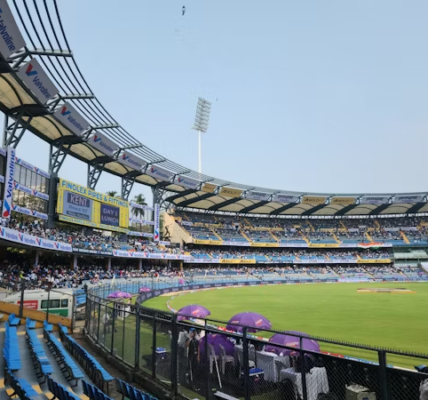Ange Postecoglou has become one of the most exciting and talked-about figures in football management over the last decade. Known for his dynamic, attacking style of play and his relentless pursuit of success, Postecoglou has made his mark in several countries and across different levels of football. This article delves into Postecoglou’s rise, his philosophy, and the legacy he is building in modern football.

The Rise of Ange Postecoglou
Ange Postecoglou was born on August 27, 1965, in Greece to parents who had emigrated from the Mediterranean country to Australia. Growing up in Melbourne, Postecoglou’s first love was football. Like many young Australians, he was drawn to the sport early on, but unlike others, his deep knowledge and understanding of the game would soon become his key asset.
Early Playing Career
Before becoming a manager, Postecoglou had a modest playing career. He spent the early part of his football journey playing for Melbourne clubs, most notably South Melbourne FC, where he earned a reputation as a talented yet hard-working midfielder. Although his playing career never reached international heights, his ability to read the game set the foundation for his future as a manager.
His playing days allowed him to develop an understanding of what it takes to succeed on the pitch, and this wisdom translated perfectly into his later coaching career. The transition from player to coach wasn’t immediate, but Postecoglou’s passion for the game and his keen eye for tactical detail would soon propel him to the forefront of Australian football.
Coaching Beginnings: National Success with Australia
Postecoglou’s first significant managerial role came at South Melbourne FC, where he found early success. Under his leadership, the club became one of the dominant forces in Australian football, capturing several National Soccer League (NSL) titles in the late 1990s and early 2000s. His achievements with South Melbourne were a reflection of his tactical acumen, as he built teams that were aggressive, organized, and highly effective in both attack and defense.
However, Postecoglou’s defining moment came when he took over as the head coach of the Australian national team. Appointed as the Socceroos’ coach in 2013, Postecoglou was tasked with revitalizing Australian football. His style of play, often called “total football,” was in stark contrast to the defensive and pragmatic approach that had previously defined the Socceroos.
Under Postecoglou, Australia embraced a high-pressing, possession-based game, focusing on short, quick passes and building attacks from the back. Postecoglou’s influence on the Socceroos was immediate, culminating in Australia winning the 2015 AFC Asian Cup on home soil. This victory solidified Postecoglou’s place as one of the most forward-thinking managers in international football.
Tactical Philosophy: High Press, Possession, and Attack
One of the most striking aspects of Postecoglou’s managerial philosophy is his insistence on a high-pressing, possession-based style of play. While many teams at the elite level prefer to sit back and absorb pressure, Postecoglou encourages his players to be proactive—pressing high up the pitch and controlling possession from the back. His philosophy is built around the idea that football should be played with intensity and urgency, and his teams are expected to attack relentlessly.
Pressing From the Front
Postecoglou’s emphasis on pressing is a core part of his strategy. He believes that pressing high up the pitch not only disrupts the opponent’s ability to build attacks but also forces mistakes and creates more opportunities for counter-attacks. His teams, whether at club level or with the national team, are often seen swarming the opposition as soon as they lose the ball, ensuring that recovery is fast and efficient.
This intense pressing style has its roots in modern football, particularly the work done by coaches like Jürgen Klopp and Pep Guardiola. However, Postecoglou takes it one step further, demanding that his teams continue to attack even when they are not in possession of the ball. The idea is to overwhelm the opposition at every turn, creating a constant state of pressure.
Possession and Build-up Play
While Postecoglou is known for his high press, his focus on possession is equally important. His teams prefer to build attacks from the back, with the defenders and midfielders working in tandem to maintain control of the ball. Short, sharp passing triangles, fast transitions, and an emphasis on width characterize the style of play he advocates.
This focus on possession is designed to break down teams systematically. Rather than relying on direct counter-attacks or long balls, Postecoglou’s teams wait for the right opportunity to break through an opponent’s defense. The central midfielders play a crucial role in controlling the tempo of the game, while the wide players and forwards create spaces for one another to exploit.
Fast and Fluid Attacking Play
Another key element of Postecoglou’s style is fast, fluid attacking play. His teams are instructed to move the ball quickly and with purpose, exploiting spaces and making runs into attacking positions. There is little room for static play under his guidance; every player on the pitch is expected to be involved in the offensive phase, with quick transitions ensuring that the team remains unpredictable.
Postecoglou’s attacking system allows for versatility. His teams have the ability to play both through the middle and down the flanks, ensuring that they can adapt to various defensive setups. The key to this success is the fluidity of his attacking players—whether it be the fullbacks overlapping, or the central strikers dropping deep to link play.
In Summary
Ange Postecoglou’s rise through the ranks of football management has been nothing short of remarkable. From his early days in Australia to his successful stints in Japan and Scotland, Postecoglou has established himself as one of the most exciting and innovative coaches in the world. His tactical approach, built around high pressing, fluid attacking play, and possession, has revolutionized the way teams play football, and his success across multiple continents proves that his methods can bring success at any level.
FAQs
Who is Ange Postecoglou?
Ange Postecoglou is an Australian football manager and former player, renowned for his aggressive, possession-based football. Born in Greece in 1965, he moved to Australia with his family as a child. Postecoglou made a name for himself in Australian football before taking on the role of head coach of the Australian national team, the Socceroos. He is best known for leading the Socceroos to the 2015 AFC Asian Cup title and for his successful stint at Celtic FC in Scotland, where he brought back the Scottish Premiership title after a period of dominance by Rangers.
What is Ange Postecoglou’s Coaching Philosophy?
Postecoglou’s coaching philosophy centers around attacking, high-pressing football with an emphasis on possession and building play from the back. His approach can be categorized as modern, fluid, and adaptable to different leagues and competitions. His teams are known for their intense pressing, creating pressure on opponents high up the pitch, and playing quick, sharp passes. The objective is to maintain possession, dominate the ball, and break down defensive structures with quick, attacking play.
How Does Ange Postecoglou’s Football Style Differ from Other Coaches?
Postecoglou’s football style stands out for its intensity and proactive nature. Unlike many modern coaches who rely on counter-attacks or deep defensive setups, Postecoglou’s teams are aggressive in pressing, ensuring they dominate possession and control the game. His focus on building from the back and maintaining a high press forces teams into mistakes, allowing his players to exploit spaces quickly. This approach has gained him recognition and admiration from both players and fans.
Why Did Postecoglou Leave the Socceroos for Celtic?
Postecoglou left his role as the manager of the Australian national team after guiding them through the 2018 World Cup qualification process. His move to Celtic in 2021 was largely driven by the opportunity to manage a prestigious European club and prove his methods on the bigger stage of European football. At Celtic, he faced the challenge of reviving the team after a tough season and ended up winning the Scottish Premiership and other domestic honors in his first year.
What Is Next for Ange Postecoglou?
Postecoglou’s success in Scotland has made him one of the most sought-after managers in world football. While there has been speculation about his potential move to top leagues in Europe, his current focus remains on continuing to develop Celtic and aiming for more success. His tactical genius and ability to build winning teams make him a highly respected figure in football management. Fans are eagerly watching to see whether he will stay in Scotland long-term or if a move to an elite club beckons in the future.
To read more, click here



